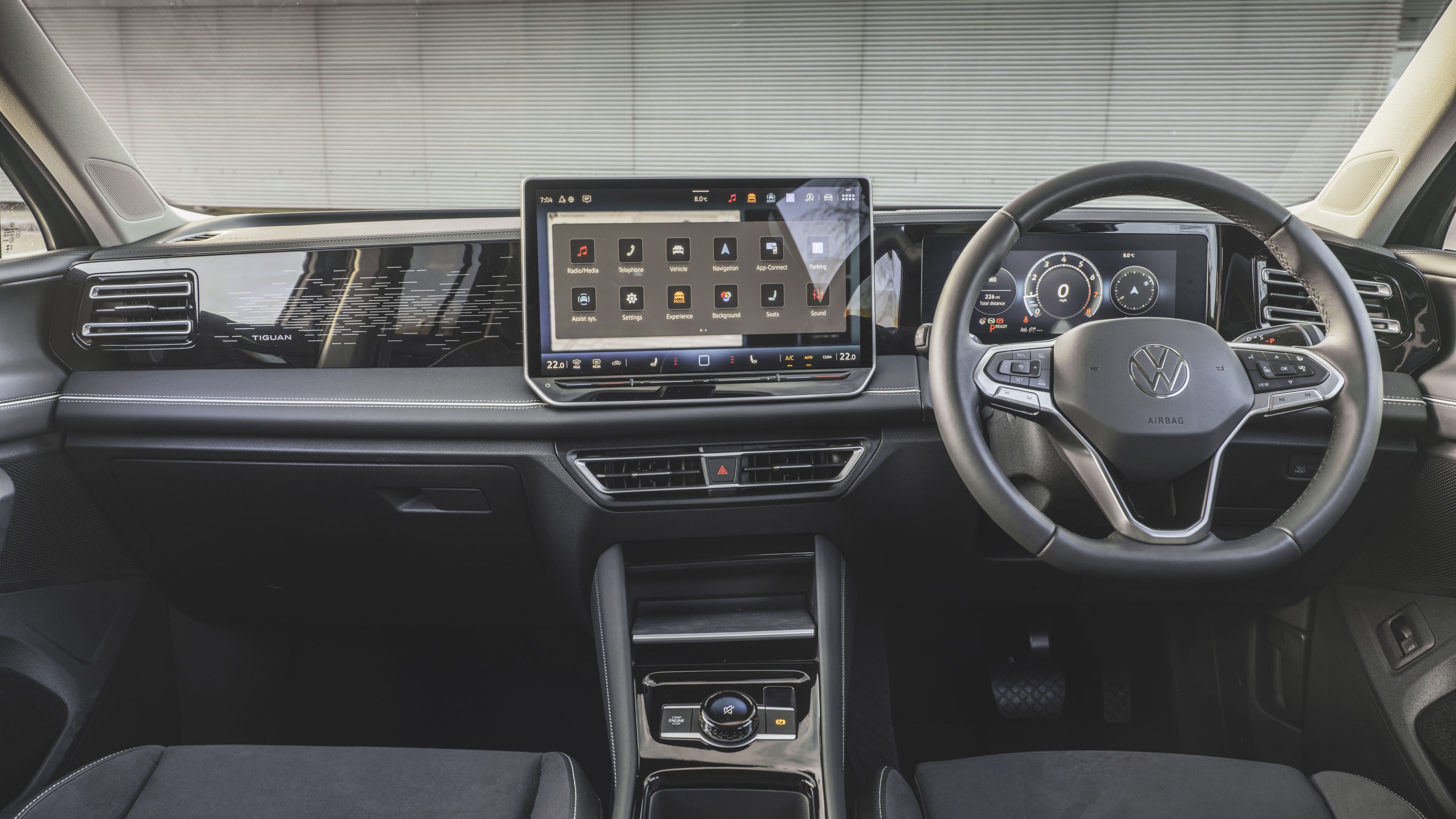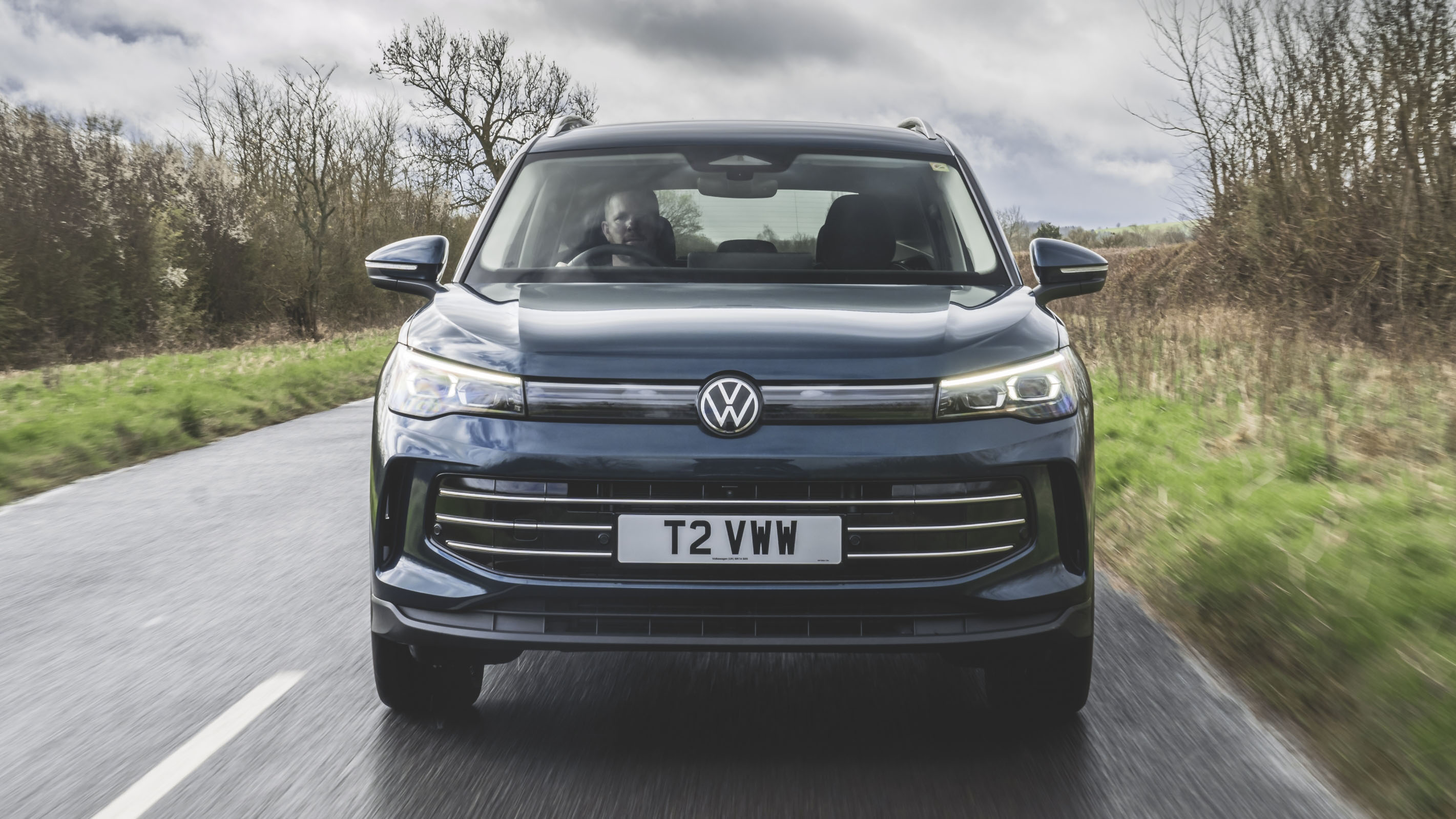
Buying
What should I be paying?
Naturally it costs more than before. And more than when this generation was first launched. That’s a general trend of the industry. So prices now start at a smidge over £35,000 (or around £420 a month) for a base Tiguan in 128bhp trim.
Compared to its rivals, both a Skoda Karoq and Nissan Qashqai start around five grand less, a Ford Kuga around three grand less, a Peugeot 3008 (one of which we're running as a long-termer) around the same, and a BMW X1 around a grand more. So it’s not the cheapest out there if that’s all you care about.
Back to the base-spec Tiguan, and while it might look dowdy on its 17in alloys (cutely named Bari, after the gorgeous Italian town), that’ll probably help the ride comfort.
It’s got all the essentials too: digital dials, a 12.9in touchscreen, front and rear parking sensors and rear parking camera, LED lights and the DSG ‘box with steering wheel paddleshifters. Options on this car are minimal; it’s designed as an entry point rather than a blank canvas to start decorating.
£36,950 (or twenty quid extra a month) gets you a more customisable Tiguan Life with 18in Napoli wheels, adaptive cruise control, parking assistance and a big boost for the interior quality courtesy of front-seat lumbar support, ambient lighting, multi-zone climate control and USB-C ports for the rear passengers. It also opens up the chance of other powertrains beyond that entry 1.5.
More luxurious features like heated, ventilated and massaging seats are reserved for the plusher Elegance and R-Line trims, which sit north of £40,000 (or £455-465 a month) and offer slightly different styles. The former gets 19in wheels and a chrome look front grille, the latter a set of 20s (amusingly called ‘Leeds’) and more aggressive intakes and detailing.
A new range-topping Black Edition trim arrived in late 2024, costing from £46,605 (£545p/m) and promising yet more eye-catching style. Explains the ‘York’ 20in alloys then… wait, no it doesn't. Your guess is as good as ours. Additional features include a pure white paintjob, matrix headlamps and LED taillights.
Meanwhile options packs include the £1,110 Comfort Package, which brings a memory function for the self-parking system – to help you nail that awkward parallel park at home – as well as keyless unlocking and boot opening.
The DCC adaptive suspension comes as part of a £1,000 package, while the 15in infotainment screen and a head-up display are part of a £1,100 ‘Infotainment Plus’ parcel. Matrix LED headlights are £580 and a panoramic sunroof another £1,350, even on the chintzy R-Line. This is a car that’ll get pricey quickly.
VW expects the bulk of buyers to go for a plug-in hybrid, which is little surprise when a lot of business car schemes insist on a decent slug of electrification thanks to the lower CO2 taxation it brings.
As a private buyer, we’d be tempted to stick to simple internal combustion to save money and weight. The 148bhp mild hybrid ought to be enough while the diesel feels right on point for this car’s use case if you can live with the fuel’s current image.
Featured

Trending this week
- Car Review
BMW 1 Series
- Top Gear's Top 9
Nine dreadful bits of 'homeware' made by carmakers






